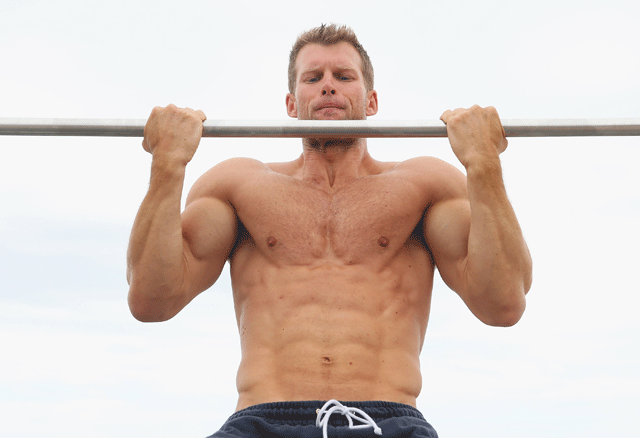When it comes to building muscle, conventional workout wisdom suggests that you should lift heavy weights. But a new Canadian study claims you can reap the same effects on your muscles by lifting lighter weights with more repetitions.

Scientists out of McMaster University in Hamilton, Ont., say it doesn’t matter how heavy your weights are or how many repetitions you do. As long as you’re lifting to the point of exhaustion, your muscles will strengthen.
“Even with a lighter weight, you can get fatigued … all your muscle knows is it’s hard to try to recruit all its fibres to try to generate that force. Your muscle doesn’t understand or can’t interpret the difference between fatigue induced by heavy weights versus light weights,” said Dr. Stuart Phillips, one of the study’s co-authors.
READ MORE: Want to lose weight and gain muscle? Canadian study suggests the perfect formula
Phillips is a kinesiology and medicine researcher at the university where he studies nutrition, exercise and their effects on the body. His latest study is the third and final installment in his research on weight lifting. The study was led by Robert Morton, a weight lifting coach and graduate student in kinesiology.
In his previous work, Phillips compared lifting heavy weights for a few repetitions versus lifting light weights for about two dozen reps. He discovered that in untrained men, they’d bulk up regardless of their workout routine.
- Canadian man dies during Texas Ironman event. His widow wants answers as to why
- ‘Sciatica was gone’: hospital performs robot-assisted spinal surgery in Canadian first
- Canadians more likely to eat food past best-before date. What are the risks?
- Treatment from female doctors leads to lower death rates, study finds
But Phillips said critics slammed his work, alleging that men who didn’t work out to begin with would gain results from rigorous weight lifting anyway.
This time Phillips recruited 49 healthy, strong men. On average, they were about 23 years old, six feet tall and about 190 pounds. They had been lifting weights for at least four years and visited the gym three to five times a week.
READ MORE: Your guide for what to eat before and after a workout
“They were all heavy weight lifters to begin with, no one was a light weight lifter,” Phillips explained.
The group was split into two: one group lifted about 90 per cent of their one-repetition maximum (ORM) – or the most you can lift in a single repetition, while their counterparts lifted only 50 per cent of the ORM.
During a strenuous 12-week training period, the two groups worked out with the scientists individually. The heavy lifters did about eight reps until they reached fatigue while their peers with lighter weights did about 26 to 28 reps until they reached their limit.
This was all the exercise they did. The researchers gave the men protein supplements twice a day providing them with an extra 60 grams of the nutrient.
The scientists tested samples of both groups’ muscle fibres and blood samples. It didn’t matter which methodology the men used to bulk up – they measured similar gains in muscle mass and muscle fibre size, a key measure of strength.
They got stronger, too. The doctors measured how much the men could lift through leg presses, bench presses, knee extensions and shoulder presses and saw improved results after three months of training.
READ MORE: Follow this one tip if you’re trying to lose weight, study suggests
(The findings suggest that levels of testosterone and growth hormones, which experts have suggested may help with muscle gain, didn’t affect results.)
“We made them do a lot of work, I’ll be honest about that. But they were very happy with their results,” Phillips said.
He admits most athletes won’t adopt a lighter weight-more repetitions training regime, but his findings could apply to segments of the population who want to take up strength training without being intimidated by heavy weights.
Seniors, for example, could do more harm than good from heavy lifting. Strength training and maintaining muscle mass through light weight lifting may be their better bet, he said.
“It’s also a new choice which could appeal to the masses and get people to take up something they should be doing for their health,” Phillips said.
His next steps are to consider if the results would be replicated in women and other populations, such as the elderly.
The team’s full findings were published this week in the Journal of Applied Physiology.
carmen.chai@globalnews.ca
Follow @Carmen_Chai




Comments